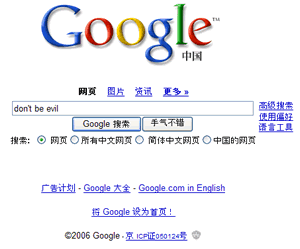 A promising anti-spam service by Israeli company Blue Security has been brought to its knees by a renegade spammer hell-bent on protecting his spamming industry
A promising anti-spam service by Israeli company Blue Security has been brought to its knees by a renegade spammer hell-bent on protecting his spamming industry
Created by Eran Reshef, Blue Security came up with what looked like a cunningly simple plan to mash up the mass mailers: fight spam with spam.
The company set up a ‘Do Not Intrude Registry’ (similar to the Do Not Call Registry for telemarketing) and invited members to download a small application called Blue Frog, which automatically sent out requests to spammers to stop sending junk e-mail.
Of course, spammers aren’t renowned for paying attention to opt-out requests, so Blue Frog came with a rather nasty bite to make sure they paid attention: the software bombarded spammers with requests from all 522,000 of its customers at the same time.
It seemed to work too – Blue Security claimed that “six out of the top ten spammers” had complied with their opt-out requests and after signing up to the free service, we found our spam dropping dramatically. But not for long.
 Spammers fight back
Spammers fight back
Not surprisingly, spammers don’t like it up ’em and soon started fighting back with a counter attack, launching a campaign of extortion e-mail messages threatening to flood users with nonsensical spam and viruses unless they removed their name from the Do Not Intrude registry.
This was followed by a sophisticated denial of service attack using tens of thousands of hijacked computers which managed to knock Blue Security’s Website off the Web.
According to Reshef, a shady Russian-speaking spammer known as PharmaMaster then managed to bribe a staff member at a top-tier ISP into ‘black holing’ Blue Security’s former IP address (194.90.8.20) at Internet backbone routers – effectively rendering Blue’s main Website invisible to anyone outside of Israel.
Rather sinisterly, PharmaMaster told Blue Security in an ICQ conversation, that if he can’t send spam, there will be “no Internet.”
 With Blue Security reduced to communicating through their secondary TypePad-hosted Weblog at bluesecurity.blogs.com, the spammer moved in for the kill, launching a ferocious denial of service attack that closed down the TypePad and Live Journal servers owned by Six Apart.
With Blue Security reduced to communicating through their secondary TypePad-hosted Weblog at bluesecurity.blogs.com, the spammer moved in for the kill, launching a ferocious denial of service attack that closed down the TypePad and Live Journal servers owned by Six Apart.
This resulted in thousands of blogs disappearing off the Web for a few hours, with the net operations of five top-tier hosting providers in the US and Canada also being disrupted.
The attack also shut down operations for around 12 hours at Tucows Inc., a Canadian Internet services company who helped manage Blue Security’s site.
Surrender
Faced with this endless aggro, Reshef has pulled the plug on his anti-spam operations, commenting, “It’s clear to us that [quitting] would be the only thing to prevent a full-scale cyber-war that we just don’t have the authority to start.”
“Our users never signed up for this kind of thing,” he wearily added, admitting that in retrospect he’d made the mistake of not anticipating that PharmaMaster would go “beserk.”
Commenting on the DoS attack on his server, Tucows CEO Elliot Noss declared it to be “by far the largest the company had ever seen,” adding that very few companies currently have the infrastructure in place to withstand similar full-on assaults.
“This attack really was like trying to take out a mosquito with an atomic bomb,” Noss added.
According to Six Apart, the FBI is investigating the attacks, but we won’t be holding our breath on seeing anyone behind bars.
Told You So
Speaking to the Washington Post, Todd Underwood, chief of operations and security for Renesys Corp, tried hard to stop himself from saying, “I told you so”:
“When the company’s founders first approached the broader anti-spam community and asked them what they thought of the idea, everyone said this was a terrible idea and that they would eventually cause a lot of collateral damage,” Underwood commented.
“But it’s also extremely unfortunate, because it shows how much the spammers are winning this battle,” he added.
Where this leaves the venture capitalists who invested more than $4 million in Blue Security in 2004 is anyone’s guess, but we’re saddened to see the outcome.
The fate of Blue Security’s initiative proves that steeenkin’ spammers still rule the Internet and until governments take a unified and global approach to prosecuting junk mailers, they’re free to do whatever they like.
 Microsoft have been fined by the European Commission for failing to comply with an anti-competitive ruling.
Microsoft have been fined by the European Commission for failing to comply with an anti-competitive ruling. ![]() The EC made a previous ruling against Microsoft in March 2004 when they threatened fines up to €497 million ($632m, £330m).
The EC made a previous ruling against Microsoft in March 2004 when they threatened fines up to €497 million ($632m, £330m).  Competition Commissioner Neelie Kroes was quoted by Reuters as saying, “Microsoft has still not put an end to its illegal conduct. I have no alternative but to levy penalty payments for this continued non-compliance. No company is above the law.”
Competition Commissioner Neelie Kroes was quoted by Reuters as saying, “Microsoft has still not put an end to its illegal conduct. I have no alternative but to levy penalty payments for this continued non-compliance. No company is above the law.” This just in, Steven Carter, Chief Executive Officer of UK communication uber-regulator Ofcom will be standing down with effect from 15 October 2006.
This just in, Steven Carter, Chief Executive Officer of UK communication uber-regulator Ofcom will be standing down with effect from 15 October 2006.  The next role for Carter has been the matter of some conjecture, nay gossip. Given Ofcom is seen by a lot of the world as a leader in communications regulation, there are many possible roles. Amoung those mentioned so far have been BSkyB, and with James Murdoch rumoured to be shifting upstairs the position may be open. Hey … how about the FCC?
The next role for Carter has been the matter of some conjecture, nay gossip. Given Ofcom is seen by a lot of the world as a leader in communications regulation, there are many possible roles. Amoung those mentioned so far have been BSkyB, and with James Murdoch rumoured to be shifting upstairs the position may be open. Hey … how about the FCC?  A promising anti-spam service by Israeli company Blue Security has been brought to its knees by a renegade spammer hell-bent on protecting his spamming industry
A promising anti-spam service by Israeli company Blue Security has been brought to its knees by a renegade spammer hell-bent on protecting his spamming industry  Spammers fight back
Spammers fight back With Blue Security reduced to communicating through their secondary TypePad-hosted Weblog at bluesecurity.blogs.com, the spammer moved in for the kill, launching a ferocious denial of service attack that closed down the TypePad and Live Journal servers owned by Six Apart.
With Blue Security reduced to communicating through their secondary TypePad-hosted Weblog at bluesecurity.blogs.com, the spammer moved in for the kill, launching a ferocious denial of service attack that closed down the TypePad and Live Journal servers owned by Six Apart.  Google has struck up a partnership with the US National Archives to digitise their historic movie collection and provide free access to the public through their video search service.
Google has struck up a partnership with the US National Archives to digitise their historic movie collection and provide free access to the public through their video search service.  “Our new strategic plan emphasises the importance of providing access to records anytime, anywhere. This is one of many initiatives that we are launching to make our goal a reality,” he added.
“Our new strategic plan emphasises the importance of providing access to records anytime, anywhere. This is one of many initiatives that we are launching to make our goal a reality,” he added. Happily, this was not the case, as a Google spokesperson explained: “Video uploaders, using Google Video’s ‘Advanced Options’ feature, can choose to blacklist countries. In this case the uploader blacklisted the US and only the US. When uploading the video the content owner set a preference not to show this content to users in the US.”
Happily, this was not the case, as a Google spokesperson explained: “Video uploaders, using Google Video’s ‘Advanced Options’ feature, can choose to blacklist countries. In this case the uploader blacklisted the US and only the US. When uploading the video the content owner set a preference not to show this content to users in the US.” It was with great disappointment and a heavy heart that we heard that Google had compromised their search results in China, excluding results the Chinese government didn’t find acceptable. In effect becoming the government’s censor.
It was with great disappointment and a heavy heart that we heard that Google had compromised their search results in China, excluding results the Chinese government didn’t find acceptable. In effect becoming the government’s censor. It’s not that we think that people will stop searching on Google, it’s just that they won’t trust Google implicitly any more
It’s not that we think that people will stop searching on Google, it’s just that they won’t trust Google implicitly any more So where do we start?
So where do we start?  Naturally, there will always be those who say regulatory decisions made by organisations such as Ofcom are ‘independent’ and ‘evidence-based’ and therefore would be valid whoever happened to be in government. However, most people know Ofcom is ultimately a product of the government who created its remit – New Labour – and who on occasion have allowed the notion of ‘evidence-based’ regulation to underpin a culture of third party ‘experts’ who decide policy matters with a minimum of public participation or scrutiny.
Naturally, there will always be those who say regulatory decisions made by organisations such as Ofcom are ‘independent’ and ‘evidence-based’ and therefore would be valid whoever happened to be in government. However, most people know Ofcom is ultimately a product of the government who created its remit – New Labour – and who on occasion have allowed the notion of ‘evidence-based’ regulation to underpin a culture of third party ‘experts’ who decide policy matters with a minimum of public participation or scrutiny. If you were to consider UK telecoms, media, and technology (TMT) policy since Parliament passed the Communications Act 2003 and brought about the formation of Ofcom much has happened. The regulatory machinery of the state has swung into action with relative efficiency, taking on such issues as BT’s marketplace position, digital switchover, and public subsidy and control of broadcasting and new media. And we are starting – just starting – to see the results of some those efforts.
If you were to consider UK telecoms, media, and technology (TMT) policy since Parliament passed the Communications Act 2003 and brought about the formation of Ofcom much has happened. The regulatory machinery of the state has swung into action with relative efficiency, taking on such issues as BT’s marketplace position, digital switchover, and public subsidy and control of broadcasting and new media. And we are starting – just starting – to see the results of some those efforts. Certainly the party is already developing new ideas (or in some cases adopting the opposition’s cast-offs) in other policy areas. And by all accounts, David Cameron is doing an effective job of moving the Tories back toward the centre of British politics. The new leader appears flexible and open to new policy approaches. But nothing definite is happening in the TMT space. We think it should.
Certainly the party is already developing new ideas (or in some cases adopting the opposition’s cast-offs) in other policy areas. And by all accounts, David Cameron is doing an effective job of moving the Tories back toward the centre of British politics. The new leader appears flexible and open to new policy approaches. But nothing definite is happening in the TMT space. We think it should. A US federal appeals court has upheld the mammoth $22,500 (£12,760, €18,930) fine slapped on a 29 year old Chicago mother caught illegally distributing songs over the Internet.
A US federal appeals court has upheld the mammoth $22,500 (£12,760, €18,930) fine slapped on a 29 year old Chicago mother caught illegally distributing songs over the Internet. After Ms Gonzalez rejected an earlier proposed settlement from music companies of about $3,500 (£1,950 €2,950), a federal judge later filed a summary judgement ordering her to shell out $750 (£425) for each of 30 songs she was accused of illegally distributing over the Internet.
After Ms Gonzalez rejected an earlier proposed settlement from music companies of about $3,500 (£1,950 €2,950), a federal judge later filed a summary judgement ordering her to shell out $750 (£425) for each of 30 songs she was accused of illegally distributing over the Internet. Ms Gonzalez’s case was part of first wave of civil lawsuits filed by record companies and their trade organisation, the Recording Industry Association of America (RIAA), back in September 2003.
Ms Gonzalez’s case was part of first wave of civil lawsuits filed by record companies and their trade organisation, the Recording Industry Association of America (RIAA), back in September 2003. There’s a Trust Issue Here
There’s a Trust Issue Here A company called Woog Labs (yes, really) have
A company called Woog Labs (yes, really) have